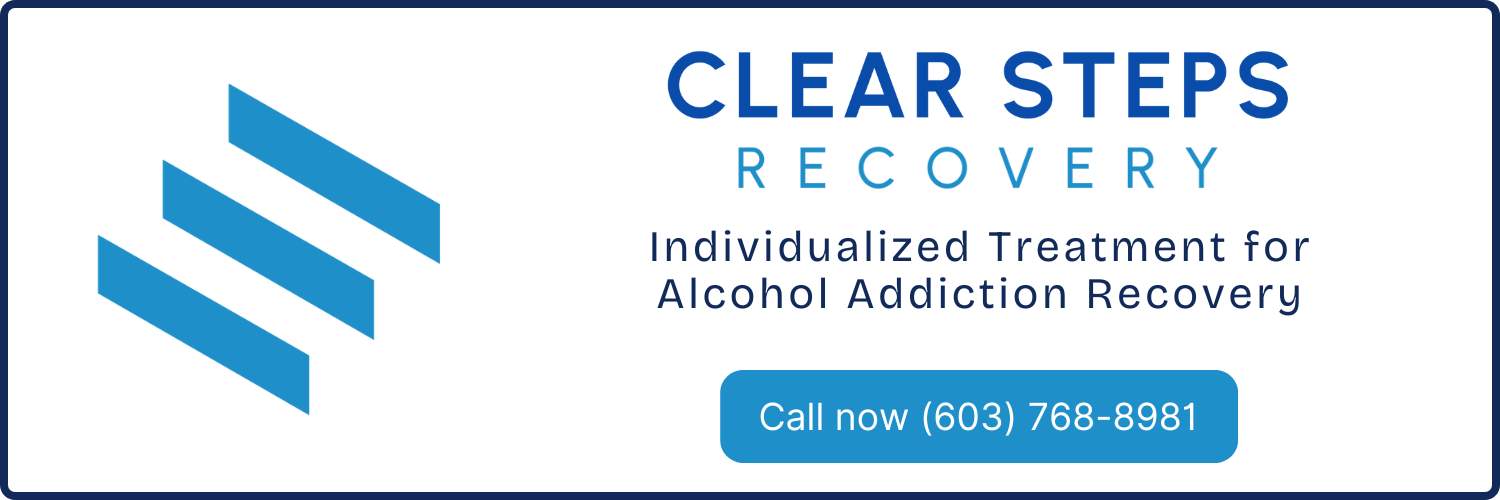Is Alcoholism Considered a Disability? Understanding Rights, Protections, and Support
October 29, 2025
Learn whether alcoholism is classified as a disability under the ADA. Explore legal rights, workplace protections, and treatment options for individuals struggling with alcohol use disorder.
Once you’ve been branded with the stigma of alcoholism, it might seem to follow you around. Just when you start to get up on your feet, the world knocks you down again. Too late — you blew your chance.
Does this describe your experience? Does it seem like everything’s against you?
Well, the good news is that you don’t have just one chance. Mercy, compassion, and good sense underlie the laws regarding alcoholism as a disability.
Clear Steps Recovery explains how alcoholism is regarded by the Americans with Disabilities Act, how alcoholism relates to mental health, and how the connection between the two facilitates recovery for alcoholism patients.
Table of Contents
- Alcoholism and the ADA: Legal Protections Explained
- Workplace Rights for Individuals With Alcohol Use Disorder
- Alcoholism as a Medical and Mental Health Condition
- Why It Matters if Alcoholism Is Recognized as a Disability
- How Clear Steps Recovery Supports Your Journey to Healing From Substance Abuse
Alcoholism and the ADA: Legal Protections Explained
The Americans with Disabilities Act (ADA) defines a disability as a current or past condition that “substantially limits” a person’s ability to carry out “major life functions,” including cognitive and sensory functions, movements necessary for survival and work performance, and healthy organ function.
If alcohol use disorder (AUD) has caused an impairment in any of these areas, the person may qualify for protection under the ADA. As long as a person with alcohol use disorder is still capable of performing their work roles as adequately as someone not so afflicted, an employer may not discriminate against them on the basis of the AUD.
Recognizing alcoholism as a disability helps reduce stigma for people trying to recover and helps them get access to treatment. Clear Steps Recovery can help you take the important steps toward freedom from alcoholism.

Is Alcoholism a Disability Under Federal Law?
Courts have not always agreed that alcoholism should be deemed a disability in every instance. Some situations taken to court have evoked the need for distinguishing between functional alcoholism and disabling alcoholism on a case-by-case basis.
Certain criteria have been established to help determine whether someone’s alcoholism substantially limits their abilities and thus merits protection under the ADA:
- The physical or mental impairment interferes significantly with the person’s execution of daily tasks, such as eating, sleeping, concentrating, learning, etc.
- The AUD has contributed to a coexisting condition that could be deemed a disability, such as insomnia, anxiety, or depression.
- Despite these impairments, the person is still able to perform their essential job functions adequately and safely.
Limitations to ADA Protections
Although employers may not — according to the ADA — discriminate against employees on the basis of alcohol use disorder, they still have the right to:
- Prohibit alcohol use in the workplace
- Require that employees not work under the influence of alcohol
- Discipline an employee for poor performance or misconduct at work even if it’s related to the AUD

Workplace Rights for Individuals With Alcohol Use Disorder
Reasonable Accommodations
An employer is required under the ADA to provide reasonable accommodations to employees with AUD. Reasonable accommodations may include:
- Flexible work scheduling to allow the employee to attend treatment sessions
- Unpaid leave for rehabilitation
- Restructuring of work duties
- Modified break schedule
- Reassignment to a position more amenable to the employee with limitations
An employee with AUD should not expect, however, to be given what would be considered unreasonable accommodations, such as:
- Repeated warnings or “second chances” after relapses
- Rehabilitation provided by the employer (the employee must secure this)
- Accommodation without the employee’s request or admission of struggling with AUD
Employer Responsibilities
An employer has two major responsibilities with respect to alcoholism that manifest in the workplace:
- Support an employee’s endeavor to undergo treatment by making reasonable accommodations, as described above.
- Maintain workplace safety by:
- Prohibiting alcohol use
- Requiring that employees not work under the influence
- Disciplining any worker whose conduct endangers other employees or makes the workplace unproductive or unsafe
It can be difficult in circumstances surrounding alcoholism to determine what actions an employer should take and when, but these parameters are helpful for both employers and employees as they navigate a way forward after incidents related to AUD.

Alcoholism as a Medical and Mental Health Condition
Alcohol use disorder is classified as a chronic brain disease because it induces brain changes that make it difficult to cut back or quit alcohol use, despite negative consequences. Severe AUD may also be accompanied by very unpleasant withdrawal symptoms, which further aggravate attempts at abstinence.
It is helpful to understand alcoholism as a medical reality rather than a moral failing. Changes within the brain are very powerful factors influencing behavior, such that a person becomes trapped in a cycle of:
- Strong motivation to drink
- Discomfort and emotional pain when not drinking
- Anticipation for the next drink to satisfy these perceived needs
Medically supervised detox followed by prolonged abstinence can bring about improvement in brain function and recircuiting of pathways damaged by alcohol use.
Why It Matters if Alcoholism Is Recognized as a Disability
Reducing Stigma and Encouraging Treatment
Individuals seeking to escape the grip of alcoholism should be able to get the help they need without fear of discrimination.
Whatever led up to an individual’s development of alcoholism, the struggle itself is a disabling phenomenon that requires a non-judgmental approach, personal compassion, and often medical assistance.
The more people who realize this — whether they are personally contending with AUD or regularly interacting with someone who is — the less shame will be attached to those seeking treatment. As a result, struggling individuals will more freely come forward to elicit aid for recovery.
Access to Benefits and Resources
The most important step that must take place before one can begin to recover from alcoholism is to recognize that it is a disability — that it is significantly interfering with many aspects of daily life and needs to be addressed to prevent further detrimental effects. This recognition is part of what it takes to prepare oneself for the effort of recovery, which includes availing oneself of the benefits and resources available.
Challenges will arise, but there are dependable methods and pathways to follow that give truly committed individuals a good chance of success in recovery.

How Clear Steps Recovery Supports Your Journey to Healing From Substance Abuse
At Clear Steps Recovery, our compassionate team regards alcoholism as a treatable disability. The breadth of our services is designed to provide comprehensive support that helps individuals reclaim their autonomy and no longer be subject to uncontrolled cravings for alcohol and many other drugs.
Although individuals struggling with alcoholism share common challenges, each particular case is unique psychologically, and we work to customize your treatment to ensure your success. While you may choose a program or programs that seem most appropriate for you, our counselors are trained to be sensitive and attentive to your specific needs.
Our programs include:
- Health realization
- Medication-assisted treatment
- Cognitive and dialectical behavioral therapies
- Addiction day treatment
- Men’s and women’s rehab
- Family support
- And more
Contact Clear Steps Recovery today to forge a path through and beyond alcoholism’s disabling effects.

Learn About Clear Steps Recovery and How We Can Help You
Once you reach out to Clear Steps Recovery, your path becomes clear, and you can get the help and support you need to break the cycle of addiction. Our serene woodland environment promotes physical, mental, emotional, and spiritual healing.
Call today or contact us online to get started.
The Path Is Clear – Take Your First Steps Today with Clear Steps Recovery
With our team and your desire to heal, we can improve your quality of life and functional abilities, so you can get back to living your best life.































.jpg)


















.jpg)
.jpg)
















































